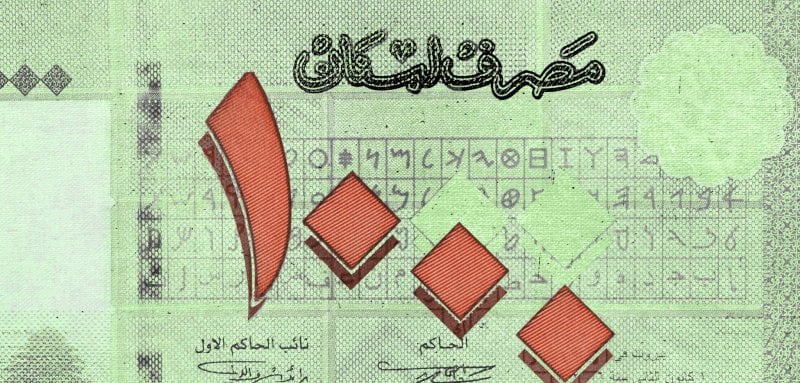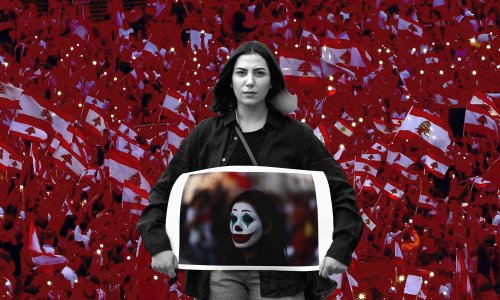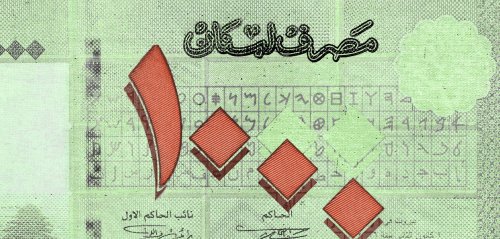The Lira has hit 5800 to the dollar. It’s now safe to say that the days of 1500 are long gone. The landscape of the city is changing quickly. With the collapse of the 23 year old peg, stores, restaurants and hotels are all closing down. The closure of special spots that hold sentimental value like Dar Al Musawwir and Kaak Abou Arab were especially painful. Prices too are soaring. Going to the store and discovering that everything is more expensive is not only financially jarring but psychologically as well. Our entire understanding of value, of what things are worth, is no longer a fixed thing. In a country like Lebanon, where the lira’s peg to the dollar has for years afforded us an inflated purchasing power and access to so many foreign products, this sudden shift will hold consequences that will be difficult to predict.
For me and my generation, who have only ever known Lebanon under the peg, this isn’t just an economic crisis but a total shift of the reality we were raised with. The collapse of the peg reveals that what I considered normal was, in reality, an illusion of economic design. In light of this shift, it’s become apparent to me that my upbringing in Beirut was, in fact, a distinct, historical phase. A phase that is now ending. I took for granted the fact that my experience of Lebanon is not as it is, but as it exists under the peg. The generation who’ve only ever known the peg are distinct from the predecessor “post-war generation”. They might as well be dubbed: the peg generation. Now that the peg is over, its unique and fabricated structures have become apparent more than ever.
It may be useful to see how Beirut changed during the Lira peg. Save for a few treasured spots, Hamra is a long row of similar American restaurants and clothing shops, with a few tourist spots along the way. This will all change now
Growing up in Beirut in the 2000s, Lebanon seemed like a stable and globalized economy. The streets were never as lively as the malls, places where I spent a bulk of my childhood. Almost all restaurants, shops and movies you’d find there were foreign. The mall was a place of abundance, a living place almost as bustling as an old marketplace. I mistakenly thought that walking the halls of a mall was the same as walking the streets of a city, but they are of course not the same thing at all. The mall itself is a foreign concept, a place physically and culturally detached from the streets and society. Yet, none of these things concerned me at the time. I was, after all, much more concerned with my cartoons, my candy and the health of my tamagotchi.
All of the joys of my childhood were imported. The cartoons I watched were all American. The radio I listened to on the way to school was always the morning shows on Radio One, or NRJ, both distinctly American formats with English speaking hosts. The candy I craved were also American, often having my mother drive me down to, of all places, Ouzai, where one of the few American stores was located. The products were actually affordable, in large parts due to the peg but also because the products were sold in these typically oversized American bulks, things like Exotic Skittles, Lucky Charms, Kool Aid.
This affinity for all things American crossed over into my teens years, and sure enough there were widely available spaces to express that in Beirut: places like Chilis, TGI Fridays and, most notably, Roadsters. These restaurants didn’t just have American menus, but were decorated with Americana all throughout: from the road signs on the wall to the kitchy badges on the waiters uniforms. Most early birthdays were in places like these and most of my early drinking experiences were at one of Bob’s diner’s (way too unregulated) Beer and Wings nights.
Having American products and culture readily available to me enabled me to connect with the people I was watching on television. I consumed the culture so totally that I wanted to become of it. For a time, I felt that I was an American to-be. This strikes me as an early example of my internalization of our dollarized economy, but also of the emigration fetish that had implicitly underscored my upbringing. Although it’s my home country, Lebanon was always a transitory place. It had been clear from early on that I was being groomed to leave, as so many Lebanese children are. Choosing a new society wasn’t difficult, it was all around me. My positive perceptions of American society created a desire in my adolescent mind to be of their culture. In short, they had won me over with Pop Tarts and Johnny Bravo.
Eventually I did try to emigrate to the U.S. by way of education. Being raised in an American schooling system in Beirut, and being so exposed to American culture, I had grown comfortable with the idea of living there. I had felt sufficiently reared and groomed in all things American. But the America that I was shown on T.V wasn’t actually the real America. The people I met weren’t as friendly as they were on Friends, they certainly weren’t as funny as they were on Seinfeld or as diverse as they were on Community. Their food wasn’t exciting but decadent (and way too sugary) and their politics wasn’t as liberal and progressive as I had perceived Obama’s to be.
As deluded as I was about Obama’s politics, I was equally deluded about American culture altogether. What I was exposed to wasn’t a genuine expression of the U.S. It was more akin to propaganda projected outwards, one that is born from the American cultural and economic hegemony that I was raised under. I wasn’t within the American empire, but just a subject of it.
This foreign influence is nothing new to Lebanon. Although the shift from French to American sphere of influence started even before the civil war, it seems to only have fully manifested under the peg and during my lifetime. The dollar, mixed with our laissez-faire economy, has dictated our city and our lives in ways immeasurable by standard metrics. Here oral histories seem crucial; in understanding actual lived-experiences, we not only are more able to detach ourselves from our reality and view another, but can also gain access to real implications of abstract and grand concepts, in this case, the peg.
To understand what affect the dissolution of the peg may have, it may be useful to see how our city had changed during the peg’s creation. Hamra is a specific example that reflects this transition. Save the few treasured spots, Hamra is currently, for the most part, kind of bland. It’s a long row of very similar American cafes, restaurants and clothing franchises, with a few tourist spots along the way. For the most part, I’ve only ever known two Hamra’s: the much romanticized, luxurious but cultural Hamra of the past and the commodified Americanized one we have now.
It was only recently that I became familiar with another Hamra, one in between the two. It still had some of its old cafes and restaurants, places that more resemble our society rather than an imported one, places like Modca and Horseshoe, all of which were hubs of intellectual and cultural life in Ras Beirut. Compared to Hamra’s eateries today, these place’s prices were more affordable, their ambience was more relatable and their clientele were more diverse. They were places where journalists and intellectuals would meet, where newspapers were read and politics discussed loudly. Relationships between customers and staff were also more familiar than the predominant servile relationship you see in the American franchises that replaced them. These places reflected Beiruti society and culture in a way that seems impossible at a Roadsters or a Starbucks.
As long as Beirut has been a major city, it has gone from one form of Westernization to another. The Beirut of my upbringing was not a newly Westernized Beirut, but just another expression of its Westernization
I've never known these restaurants, only the places that replaced them. The Modca became a Jack and Jones, the Faisals on Bliss became McDonalds, the Horseshoe became a Costa Cafe, the Wimpy’s became a Nike store. These new places included none of our history or culture. They did little but further my alienation from the society around me. Hearing stories about what Hamra used to be like exemplifies just how radically different my experience and perception of Hamra is. Now that it, and the rest of the country, is going through yet another radical change, it’s vital to take stock, to take a step back and reckon with what’s being lost and what new reality may lay ahead.
Beirut has always been a city in transition. The more I think of it, the more I realize that there is no original Beirut to speak of, one with unique, authentic features corrupted by foreign influence. Instead, as long as Beirut has been a major city, it has gone from one form of Westernization to another. The Beirut of my upbringing was not a newly Westernized Beirut, but just another expression of its Westernization.
My understanding of who I was, where I belonged and where I wanted to be was inseparable from the peg. Realizing that my desire to be American wasn’t a natural, organic desire made me realize that I had been living a myth, that even my dreams had been informed by the dollar. It’s taken years to unlearn a lot of what I believed at the time. I no longer want to emigrate to the U.S, and definitely don’t believe in the superiority of its culture. I’ve since worked tirelessly against the grain to cleanse myself of these myths and attempt to integrate myself into the local. Most of my development took place before the peg’s collapse, but now that it's gone, the myth may go with it too. Nobody can be certain what tomorrow will bring, but what’s for certain is that the reality of my generation will certainly become a thing of the past.
*The views and opinions expressed in this article are those of the author and do not necessarily reflect Raseef22
Raseef22 is a not for profit entity. Our focus is on quality journalism. Every contribution to the NasRaseef membership goes directly towards journalism production. We stand independent, not accepting corporate sponsorships, sponsored content or political funding.
Support our mission to keep Raseef22 available to all readers by clicking here!
Interested in writing with us? Check our pitch process here!









